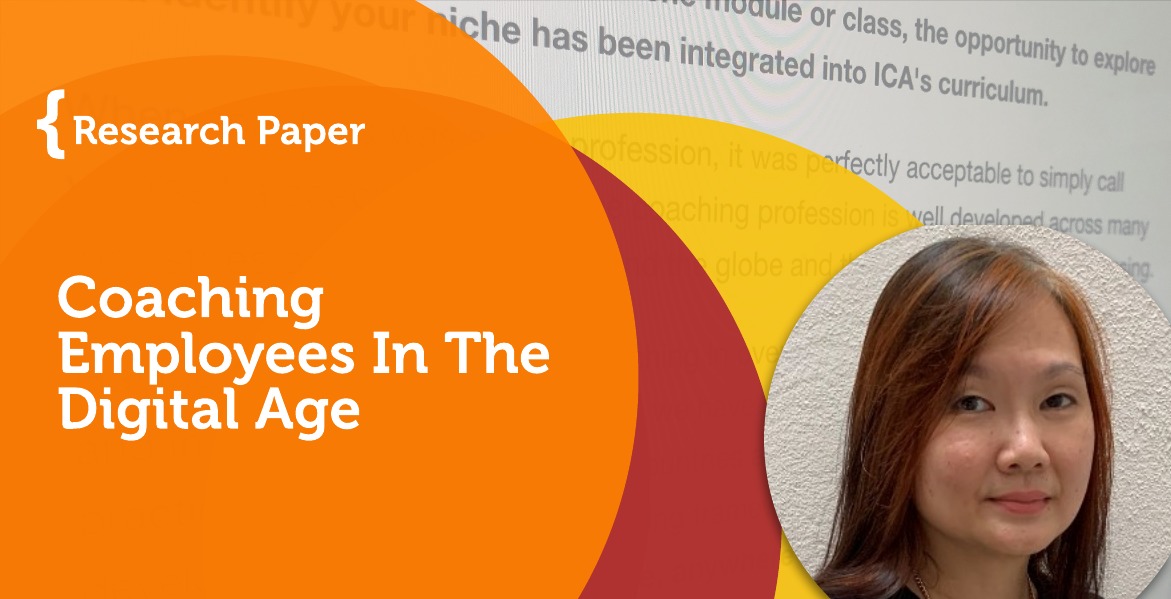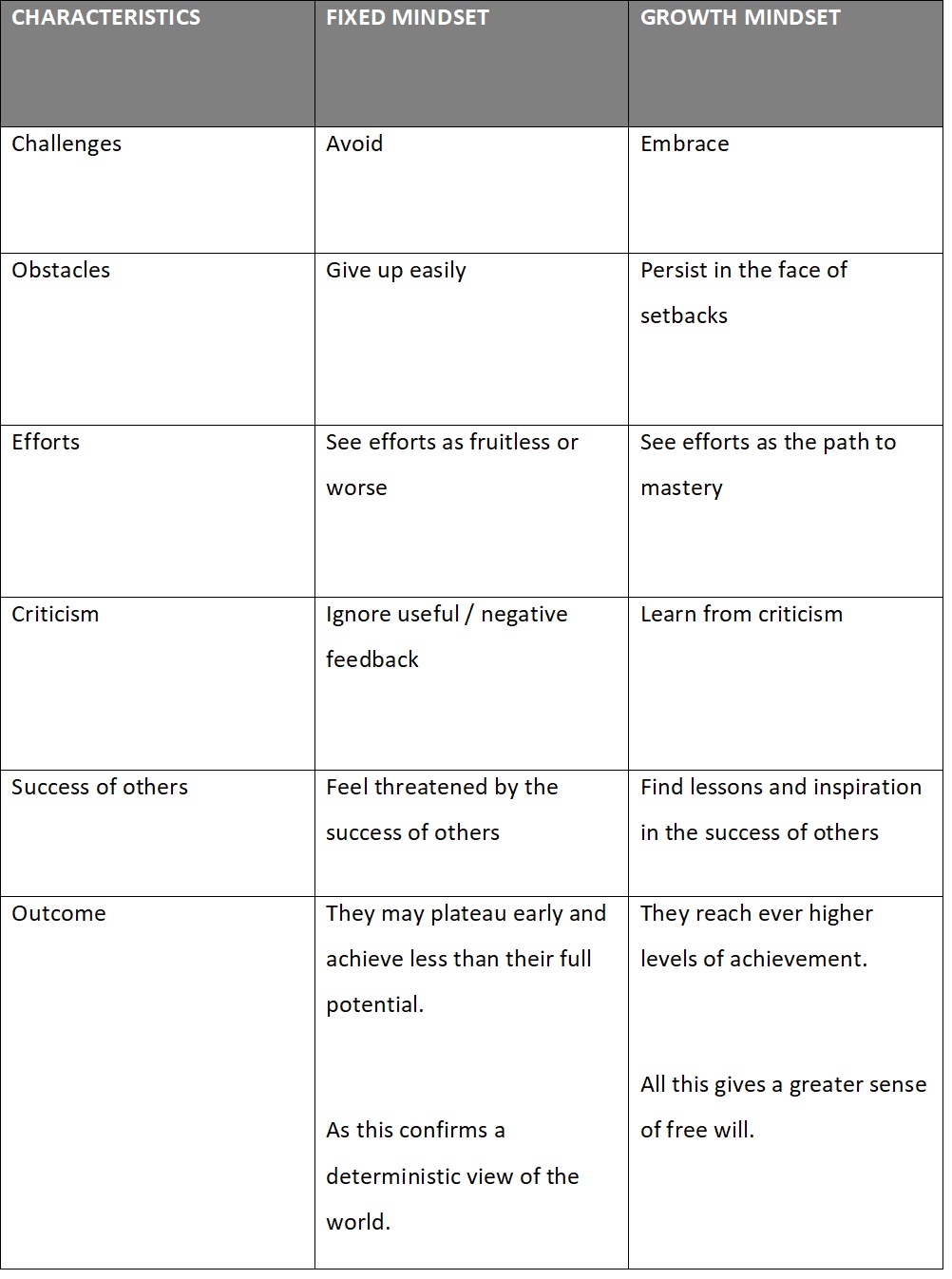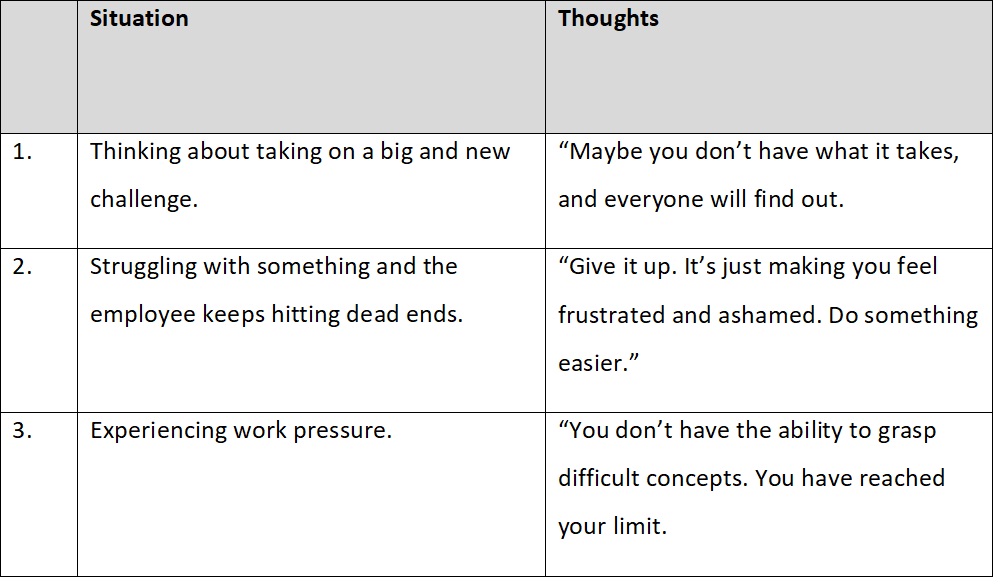
(Life Coach, MALAYSIA)
Introduction
Industry Revolution (IR) 4.0 takes the emphasis on digital technology from recent decades to a whole new level with the help of interconnectivity through the Internet of Things (IoT), access to real-time data, and the introduction of cyber-physical systems. It connects physical with digital and allows for better collaboration and access across the value chain. Hence, the evolution of Industry from 1.0 to 4.0 is changing the way we work and live.
A study released by McKinsey Global Institute found that approximately one-fifth of the global workforce will be impacted by IR 4.0. A good example is airline pilots do not spend a lot of time flying airplanes with autopilot technologies. According to the social norms, the pilots are still required to be on the plane in case of emergency. This arrangement may continue even with the autopilot technologies. On the other hand, the situation may change, i.e., only one pilot is required instead of two. Hence, we may need to upskill or shift our focus to a new discipline to stay in the workforce or maintain our competitive advantages because the skills we acquired in initial education become obsolete when the world is digitizing rapidly. However, it is not easy to upskill or change to a new discipline as the learning process takes time, perseverance, and financial resources.
The objective of this research paper is to study how a growth mindset can help build the change and learning culture after employees recognize the importance of change and learning in the digital age.
At the workplace
Sometimes, we heard the following statements:
“I have already achieved the expectation of my line manager, and I always have.”
“I don’t need to learn anymore because I am already the Head of Department.”
“I am comfortable doing my current job and I do not need to spend time upskilling myself.”
“I am not wired for the new position with different job profiles.”
“It is not wise to step out of my comfort zone.”
Psychologist Carol Dweck has spent her entire career studying attitude and performance, and her latest study shows that our attitude is a better predictor of our success than our IQ. In her book, “the mindset”, Dweck found that people’s core attitudes fall into one of two categories: a fixed mindset or a growth mindset.
Definition of a FIXED mindset
A fixed mindset is one that assumes abilities and understanding are relatively fixed. Those with a fixed mindset believe that intelligence cannot be enhanced because they do not have it when it comes to abilities and talents. Hence, they believe that talent alone leads to success, and effort is not required.
Definition of GROWTH mindset
A growth mindset is the understanding that abilities and understanding can be developed. Those with a growth mindset believe that they can get smarter, more intelligent, and more talented by putting in time and effort. They can achieve greater success when they believe they can become smarter, more intelligent, and talented by putting effort and time into personal development and learning.
The main difference between the two mindsets is the belief in the permanence of intelligence and ability. The person with a fixed mindset views it as very permanent, with little to no room for change in either direction. On the flip side, the person with a growth mindset views it as more changeable, with opportunities for improvement.
The table below shows the differences between fixed and growth mindset:
With a fixed mindset, we believe we are who we are and we cannot change. This creates problems when we are challenged because anything that appears to be more than we can handle is bound to make us feel hopeless and overwhelmed.
In contrast, we believe we can improve with effort when we have a growth mindset. Over time, we outperform those with a fixed mindset, even when we have a lower IQ. We improve because we embrace challenges, and we treat challenges as opportunities to learn something new. In short, a growth mindset promotes greater learning.
In a growth mindset, people believe that their most basic abilities can be developed through dedication and hard work—brains and talent are just the starting point. This view creates a love of learning and a resilience that is essential for great accomplishment. – Dweck
Growth mindset and business leadership
The research done by Carol Dweck showed that adults can be motivated to choose challenging tasks because of the external environment and confront their mistakes or limitations with the right kinds of feedback without constant reassurances, praises, or monetary rewards.
Studies by Peter Heslin, Don VandeWalle, and Gary Latham show that managers with a growth mindset think it is nice to have talent, but that is just the starting point. These managers are more committed to their employees’ development, and their own. They give a great deal more developmental coaching, they notice an improvement in employees’ performance, and they welcome critiques from their employees. They saw future leaders in the making.
Coaching application
The growth mindset is based on the belief in change and it is about hard work, and trying new strategies when the existing approach is not working. When it is needed, the employees are encouraged to seek input from others. We should praise the employees when the employees are working hard enough to achieve the accomplishment of the task and tie the accomplishment to the process they engaged in.
The fixed mindset creates an internal monologue that is focused on judging. People with a growth mindset are also constantly monitoring what is going on, but their internal monologue is not about judging themselves but they are attuned to its implications for learning and constructive action. Employees with a growth mindset will reflect on the following question:
- What can I learn from this?
- How can I improve?
- How can I help my colleagues to do this better?
How do we cultivate the growth-mindset environment?
Dweck has developed four steps in the journey of changing from fixed to a growth mindset.
STEP 1: To embrace the fixed mindset
In general, we are all a mixture of the two mindsets. We need to help the employees to acknowledge that sometimes, we are in one mindset, and sometimes, we are in another. However, our employees do not have to accept how often it shows up and how much havoc it can wreak when it does while embracing their fixed mindset. As a coach at the workplace, we need to be mindful that cultivating a culture of growth mindset takes time because it takes commitment and persistence.
STEP 2: To become aware of the fixed mindset triggers
We need to coach the employees to become aware of the fixed mindset triggers. For instance:
At this stage, employees should not judge themselves but just observe and be aware of the triggers.
STEP 3: Give the fixed mindset persona a name
Take a moment to think carefully about the fixed-mindset persona. Some reflection points:
- Will you name it after someone in your life? Or a character from a book or a movie?
- Will you give it your middle name?
- Is it part of you but not the main part of you?
- Will you give it a name you don’t like, to remind you that that’s not the person you want to be?
STEP 4: Educate it
The fixed-mindset persona was born to protect the individual. However, the fixed-mindset limits growth. Educate the fixed-mindset in the new growth mindset ways can support us in taking on challenges and sticking to them, bouncing back from failure. We can also gradually learn to remain in a growth-mindset state and help others in the growth-mindset journey. From the organization’s viewpoint, the organization should be able to evolve and respond to the changes in the external environment when employees are encouraged to pursue learning and growth.
Coaching questions
As business leaders or executive coaches, we need to be constantly coaching and working to develop ourselves and our teams. One of the ways to do this is by asking the right questions. The purpose of doing so is to build trust with the employees and help them to know that they are being supported in achieving greater success and growth. It is a learning journey and employees should be assured of having the confidence in making a difference.
- What are the opportunities for learning and growth today? For myself? For the people around me?
- When, where, and how will I embark on the growth plan?
- When, where, and how will I act on my new plan?
- What do I have to do to maintain and continue the growth?
- What would need to happen for you to walk away feeling that this was a success?
- If you were the bravest version of yourself today, what would you be doing?
- What one thing could you do today that would take you nearer to your goal?
- What could we be doing less of, that would help us move forward with the current goals?
- If I could do one thing to help you right now, what would it be?
- If you knew you couldn't fail, what would you do now?"
- What did you learn from this?"
- What would you do differently next time?
- What would we need to change for this to become an opportunity, rather than a challenge?
- Which of your strengths become a limitation when you exercise it too much?
- Who do you need to add to the team to make this a success?
- When was the last time you were out of your comfort zone and how did that make you feel?
- What is the worst thing that can happen if you try and fail?
- What do you have that can help you to achieve this goal, and what else do you need to guarantee success?
- On a scale of 1 - 10, how confident are you in achieving this goal?
- What's stopping you from achieving this goal?
- How do you think you will feel if when you achieve this?
- What will really make the biggest difference between success and failure?
- What does your intuition tell you about this goal?
- If this was your own business what would you do now?
- What would it take for you to feel 99% comfortable about achieving this goal?
- If you were advising someone else on how to achieve this, what would you tell them to do?
- How committed do you feel to this goal?
- What's the one thing that will stop this from being successful?
- If you could change one thing about the goal what would it be?
Summary
Shifting from a fixed mindset to a growth mindset needs time and persistence because all available research suggests that skills and talents are developed through repetition and a consistent approach. Every little growth-oriented action helps in weakening the fixed mindset voice. With a concrete and growth-oriented plan, we can bounce back from mistakes and face obstacles. We will be more alive, courageous, and more willing to accept constructive feedback because of the growth mindset. Eventually, the fixed mindset voice becomes a mere whisper in the background of who we are becoming. It is a process of continuous learning so that we can stay relevant in the digital age.
Becoming is better than being. – Yin Yin
References
How Industry 4.0 Is Affecting Jobs (2018, March).
Dweck, Carol S. (2016), Mindset – the new psychology of success(2nd Edition), New York, Penguin Random House.
Google spent years studying effective Managers. The Most Successful Leaders Had This Mindset.
Fixed Mindset vs Growth Mindset – What Really Matters for Success (2020, January).
29 Coaching Questions that can help increase success (2017, May).
How to establish a growth mindset, Scott Jeffrey.

